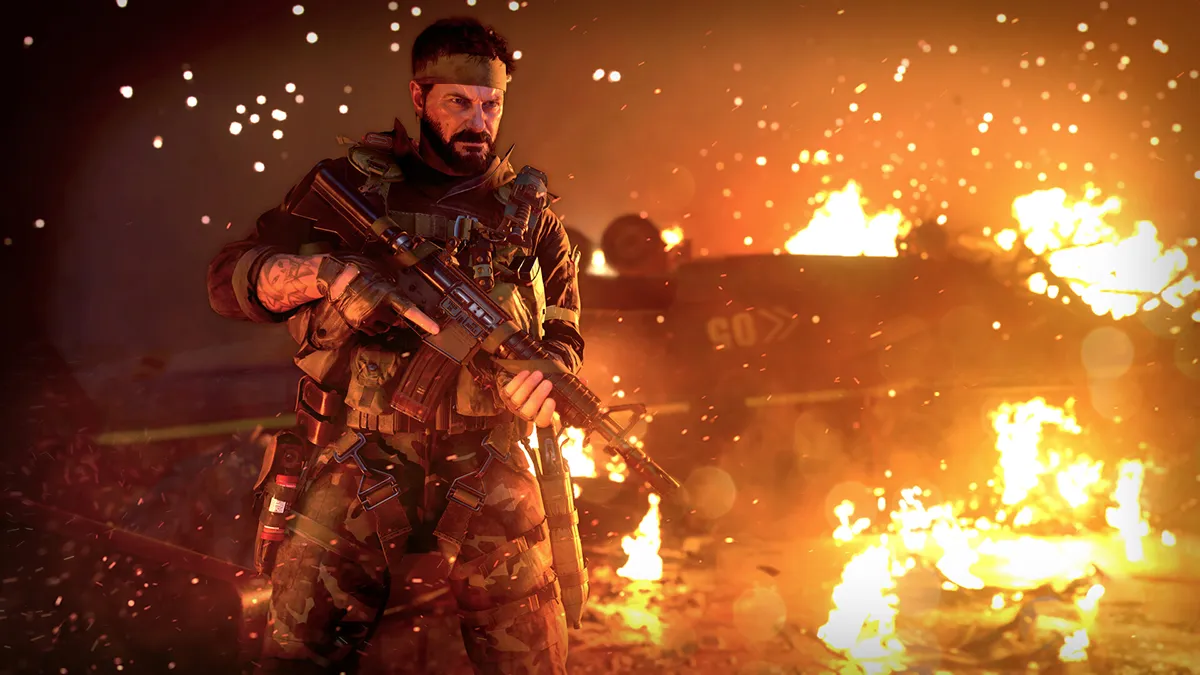Over the last few months, I’ve been playing Call of Duty: Modern Warfare 3 in small bursts and on and off. It’s not very good, yet it scratches that very specific arcade-y military FPS itch as no other modern shooter (besides its predecessors) does.
Looking at what’s coming in 2024, it’s easy to forget about a new Call of Duty (please act surprised), but it’ll probably end up the best-selling video game of the year anyway. My relationship with this franchise is complicated to say the least, but I’m willing to admit it’s got its claws sunk in me. More often than not, the latest Call of Duty is a competently-made AAA shooter that nails fast-paced online action and satisfying gunplay. You know what you’re getting, and you’re okay with that if it works.
The big issue with Modern Warfare 3 is that it feels like a remarkably cheap entry for some stupid reason (Activision utterly messing up dev cycles), which isn’t something we’re used to with Call of Duty. Hate them all you want – most installments look and play like expensive games made by veteran studios, which is exactly what they are. Recent success stories like that of Helldivers 2 have reminded us the average gamer normally responds well to uncomplicated fun that hits its targets with ease and doesn’t waste their time. Abhorrent FOMO tactics aside, Call of Duty excels at this.

However, it’d be stupid to ignore the negative impact to its reputation the series suffered with last year’s release, no matter how big the game remains and how engaged diehards are with post-launch seasons and the ill-managed Warzone component. With the AAA bubble bursting all over, several well-established IPs could quickly be heading towards diminishing returns should they not adapt to the changing face of the market, which is ultimately dictated by trends and how gamers feel about overdone models.
A big part of why Modern Warfare 3 “failed” (it still sold like hotcakes) to convince critics and veterans alike is that it clearly felt rushed despite some inspired tweaks and well-placed nostalgia bombs. Many of us are playing it because it’s the latest Call of Duty (and I’m happy to admit we shouldn’t be doing it), not because it’s a good one. Half-baked campaign aside, we deserve better. The refreshed formula that began with 2019’s Modern Warfare has run its course, and we’re due for another big creative shakeup.

Ironically, this year’s Call of Duty release, rumored to be a follow-up to 2020’s Black Ops: Cold War, will hit shelves after around four years in development unless we’re missing some crucial info. That’s more than twice the time Sledgehammer reportedly had to turn in MW3 (though Activision wants us to believe otherwise). The upside to Sledgehammer getting the short end of the stick is that Treyarch has had plenty of time to figure out where to go next with the Black Ops sub-franchise and execute a strong vision for it. Whether that vision is bold enough to usher in a new era for the IP is a completely different discussion we’ll have later this year.
In recent years, the biggest Call of Duty fanatics have tended to praise Treyarch over other lead studios even though Black Ops: Cold War was arguably the messiest post-MW entry by a landslide, missing key mechanics due to its rustier engine and feeling a bit too stiff overall. But maybe that’s what the community needs right now. I’d rather take my chances and move forward into the future (literally and figuratively) again to keep the series relevant, but after Vanguard and MW2/3 fell short of expectations in different ways, I can’t blame anyone who wants a safe but robust Black Ops: Cold War sequel.

No matter what Call of Duty 2024 ultimately is, this year’s entry should mark the series’ first make-or-break moment since a return to Modern Warfare saved the franchise from oblivion back in 2019. While it all keeps printing money, Call of Duty feels oddly irrelevant in the mainstream conversation, and the most unexpected hit in that space could steal its thunder. Moreover, with Microsoft now calling the shots above Activision and laying off nearly 2,000 Activision Blizzard and Xbox employees while facing the consequences of several big-budget blunders and slower-than-desired turnarounds, pressure and expectations have only mounted.
The absence of a new Battlefield in 2024 should also make things easier for a notable Call of Duty to become the go-to military FPS until late 2025. It’s getting busier out there, and while the numbers might still be going up and pleasing shareholders, it increasingly feels like no game series, no matter how massive, can hold the crown forever without taking big swings and getting bloodied up from time to time. Call of Duty deserves better than a slow, uninspired death.
Call of Duty: Modern Warfare 3 and Warzone are available on PC, PlayStation, and Xbox.














Published: Mar 16, 2024 9:00 PM UTC